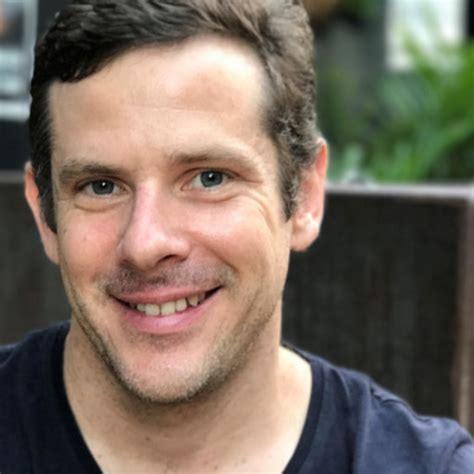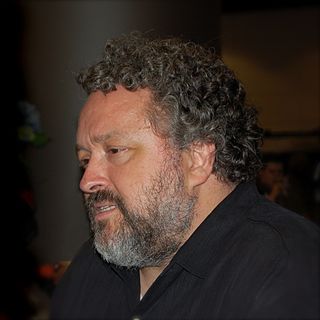A Quote by Jason Silva
We have always dovetailed our cognition to our tools, but when our tools start dovetailing back, where do I end and where does the tool begin? It is going to be a really Twilight Zonish situation. It is definitely interesting. Once Google is in a blood cell sized device in our brain, do we become part Google? There are certainly interesting things to think about and provocative questions, but I don't think those provocative questions are going to do anything to slow down the onset of these technologies arriving and becoming even more pervasive.
Quote Topics
About
Always
Anything
Arriving
Back
Become
Becoming
Begin
Blood
Brain
Cell
Certainly
Cognition
Definitely
Device
Does
Down
End
Even
Going
Google
Interesting
Interesting Thing
Interesting Things
More
Once
Our
Part
Pervasive
Provocative
Questions
Really
Situation
Slow
Slow Down
Start
Technologies
Things
Think
Those
Tool
Tools
Twilight
Related Quotes
We humans have indeed always been adept at dovetailing our minds and skills to the shape of our current tools and aids. But when those tools and aids start dovetailing back - when our technologies actively, automatically, and continually tailor themselves to us, just as we do to them - then the line between tool and user becomes flimsy indeed.
There is always this interesting relationship we have with technology. When we invented writing Socrates used to say it was going to rot our brains because we were going to write everything down and not have to remember anything, and so it would atrophy our brains. So there has always been this human drive on the one hand to create tools, to create technologies to overcome our boundaries, but then there is always this reservation, and this fear that say these technologies are somehow unnatural and it is against nature to partake in them.
If you don't put the spiritual and religious dimension into our political conversation, you won't be asking the really big and important question. If you don't bring in values and religion, you'll be asking superficial questions. What is life all about? What is our relationship to God? These are the important questions. What is our obligation to one another and community? If we don't ask those questions, the residual questions that we're asking aren't as interesting.
We want to do things that are interesting, great storytelling, some of it is gonna be more fun and funny, some of it is more serious and talking about interesting issues that we think are provocative and interesting to us. Kind of on a more political level. But, you know, just things that we find interesting that we think stories that need to be told.
I think if you asked people "what's the biggest problem in your life?" They'd say, "I just don't have time for anything!" And at our fingertips, if it isn't e-mail, it's our Blackberry, and it's our iPods and telephones - we never stop. We never take those moments to stop the stimulus to find out "what's going on in there? What's really happening?" And then things start to build up. And then we are almost afraid to slow down.
The phone is gonna disappear. Maybe it will be a bracelet. After the bracelet it will be a blood cell sized device that maybe gets installed. We already have people with Parkinson's that have chips installed in their brain to control their tremors. We already see people have pacemakers to help their heartbeats. I mean we're already putting these technologies into our bodies. It is only going to deepen.
So in terms of a large part of the job on our show specifically, what makes the show complex and interesting and funnier are the conversations about "Where's the camera?" and "How aware are the characters of the camera? Are the cameras hidden for this shot? Is it a spy shot from far away? Or is it really close and in their face, and they sort of have to play to it in an embarrassing situation?" There's a whole other level of questions and choices that come into play on our show that are not even a factor in anything else.
I think that human beings have gotten as far as we've gotten because of our adaptability, our ability to adapt, and our ability to dovetail our technologies - our brains to our tools. With the Industrial Revolution, we transcended the limits of our muscles. With the digital revolution, we transcend the limits of our minds.
I really don't know why it is that all of us are so committed to the sea, except I think it is because in addition to the fact that the sea changes and the light changes, and ships change, it is because we all came from the sea. And it is an interesting biological fact that all of us have, in our veins the exact same percentage of salt in our blood that exists in the ocean, and, therefore, we have salt in our blood, in our sweat, in our tears. We are tied to the ocean. And when we go back to the sea, whether it is to sail or to watch it we are going back from whence we came.



































